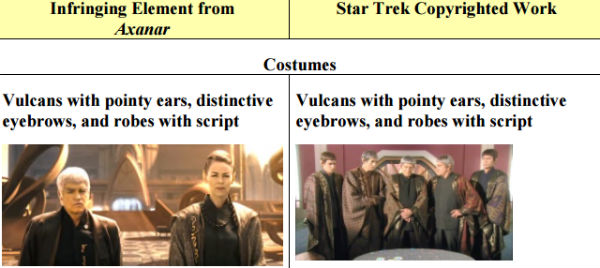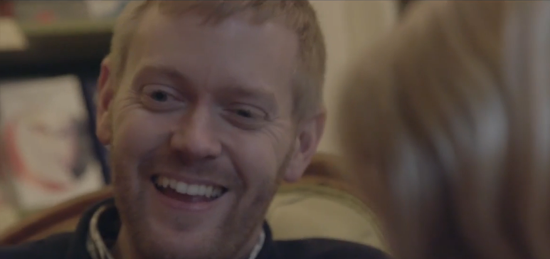The Pirate Bay Reveals New “Climate Saving” Design
vendredi 1 avril 2016 à 09:12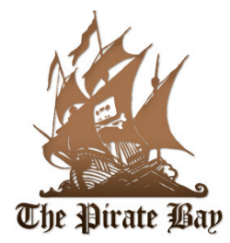 As predicted a few months ago, The Pirate Bay will roll out a new design for the site this year.
As predicted a few months ago, The Pirate Bay will roll out a new design for the site this year.
This week a reader spotted the following .css file on Pastebin, suggesting that The Pirate Bay will launch a green on black look later this month, something the TPB crew confirmed today.
“Yes, after more than a decade it’s time for something fresh. We’re still ironing out a few minor bugs but the design should go live in a week or two,” Pirate Bay’s Winston tells TorrentFreak.
While the user interface will remain mostly intact, the change is quite dramatic. The TPB team was kind enough to share two of the latest mockups, revealing a command-line inspired look.
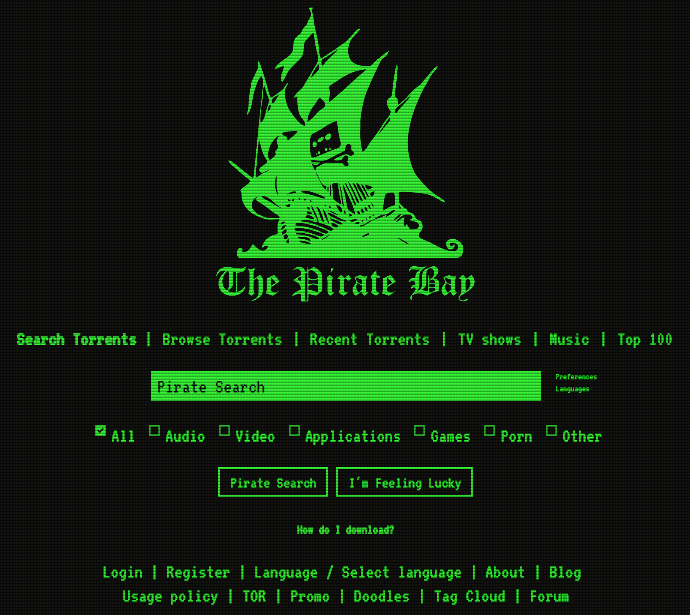
Aside from the cosmetic change, the redesign also has an ulterior motive.
“We spend most of our time looking at the command line, so for us the change is natural. But the new design also aims to lower the global power consumption by decreasing the demands on our user’s monitors.”
“We’ll therefore rename the site into ‘The Green Bay’ once we go live, just for the lulz,” Winston adds.
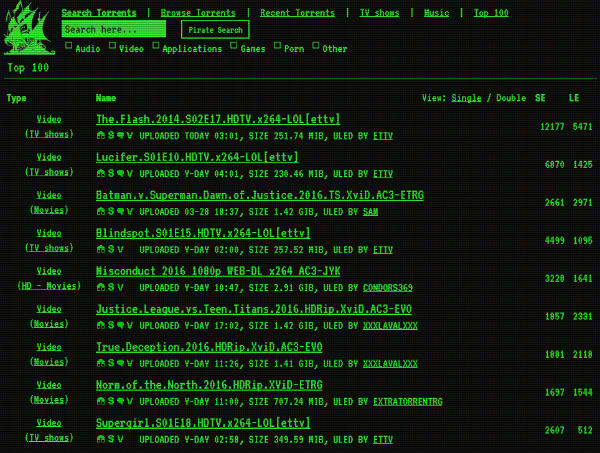
The theory behind the lower energy consumption is simple. Dark websites demand a tiny bit less energy from monitors than light ones, which adds up for a site that generates roughly a billion pageviews per month.
While the effectiveness of this type of energy saving up for debate, the idea itself is not new. A dark version of Google, Blackle, made headlines all across the Internet a few years ago with a similar idea.
And if that’s not good enough, the TPB team has some other tips in store to save the planet.
“Our users tend to be very climate aware. One of the main reasons to download the latest movies is so they don’t have to pump too much carbon into the atmosphere by driving their car to the movie theaters,” Winston notes.
In addition to The Pirate Bay, KickassTorrents is also working on a new look. The site already updated its homepage for non-registered users a few weeks ago, going for a more basic white look. The rest of the site is expected to follow soon.
The Pirate Bay team doesn’t have a hard date for the design launch yet, but it’s expected to go live later this month.
Source: TF, for the latest info on copyright, file-sharing, torrent sites and ANONYMOUS VPN services.

 In recent years copyright holders have overloaded Google with DMCA takedown notices, targeting links to pirated content.
In recent years copyright holders have overloaded Google with DMCA takedown notices, targeting links to pirated content.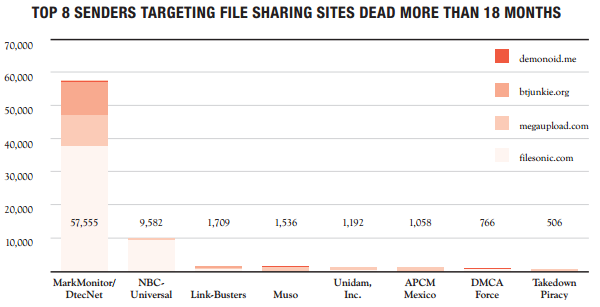
 Earlier this year Paramount Pictures and CBS Studios filed
Earlier this year Paramount Pictures and CBS Studios filed 